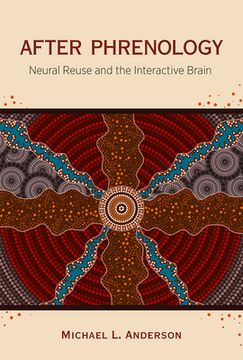Compartir
After Phrenology: Neural Reuse and the Interactive Brain (en Inglés)
Michael L. Anderson
(Autor)
·
MIT Press
· Tapa Blanda
After Phrenology: Neural Reuse and the Interactive Brain (en Inglés) - Anderson, Michael L.
$ 45.970
$ 91.940
Ahorras: $ 45.970
Elige la lista en la que quieres agregar tu producto o crea una nueva lista
✓ Producto agregado correctamente a la lista de deseos.
Ir a Mis Listas
Origen: España
(Costos de importación incluídos en el precio)
Se enviará desde nuestra bodega entre el
Jueves 16 de Mayo y el
Jueves 23 de Mayo.
Lo recibirás en cualquier lugar de Chile entre 1 y 3 días hábiles luego del envío.
Reseña del libro "After Phrenology: Neural Reuse and the Interactive Brain (en Inglés)"
A proposal for a fully post-phrenological neuroscience that details the evolutionary roots of functional diversity in brain regions and networks. The computer analogy of the mind has been as widely adopted in contemporary cognitive neuroscience as was the analogy of the brain as a collection of organs in phrenology. Just as the phrenologist would insist that each organ must have its particular function, so contemporary cognitive neuroscience is committed to the notion that each brain region must have its fundamental computation. In After Phrenology, Michael Anderson argues that to achieve a fully post-phrenological science of the brain, we need to reassess this commitment and devise an alternate, neuroscientifically grounded taxonomy of mental function. Anderson contends that the cognitive roles played by each region of the brain are highly various, reflecting different neural partnerships established under different circumstances. He proposes quantifying the functional properties of neural assemblies in terms of their dispositional tendencies rather than their computational or information-processing operations. Exploring larger-scale issues, and drawing on evidence from embodied cognition, Anderson develops a picture of thinking rooted in the exploitation and extension of our early-evolving capacity for iterated interaction with the world. He argues that the multidimensional approach to the brain he describes offers a much better fit for these findings, and a more promising road toward a unified science of minded organisms.
- 0% (0)
- 0% (0)
- 0% (0)
- 0% (0)
- 0% (0)
Respuesta:
Todos los libros de nuestro catálogo son Originales.
Respuesta:
El libro está escrito en Inglés.
Respuesta:
La encuadernación de esta edición es Tapa Blanda.
✓ Producto agregado correctamente al carro, Ir a Pagar.

